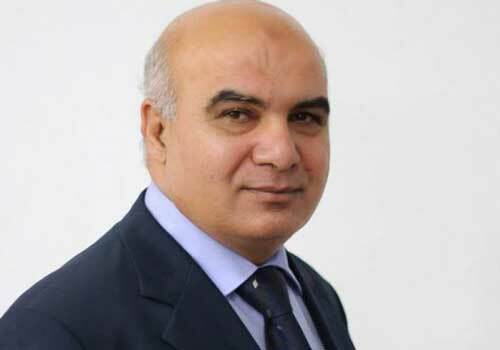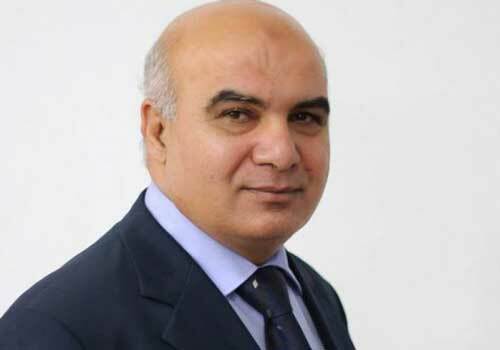Silently, calmly, balanced and conscious policy, and real awareness of the importance of the influence of the Arab region on the balance of international alliances and its ability to change the western orientations of the region. Influencing it, especially China and Iran, and this can only be achieved by ending all crises in the Arab region, internal tensions, and cases of clashes that drain all the capabilities of the Arab nation and turn it into a mere consumer market for the weapons of the West and Israel. Its colonial interests in the region as a strategic region full of wealth, not only this, but dominance over the independent Arab political decision and make the governments of the countries of the region completely dependent on Western and American protection. Through it, all the peoples of the region, and at the same time, provide nothing but a real service to the Zionist occupation state in Palestine, transform it into a superpower in the region, and contribute to its involvement in the Arab world, while remaining a brutal occupying entity.
Because Saudi Arabia entered a new era built on the basis of having a philosophy and great political capabilities that enable it to lead the region towards a new face that strengthens Arab-Arab relations, neighborhood relations and common interests. Its central position easily contributed to leading the region towards playing a major regional role in preserving the neutrality of the Arab region and distancing it from it Aside from international conflicts and thus not to engage in any alliances that may drain more Arab wealth and return them to the dark years. Today, Saudi Arabia seeks to create a coherent and strong Arab state that can stand up to the potential challenges of the development of the great international changes created by the war between Russia and Ukraine. Saudi Arabia has been working for some time to reformulate the relations of the countries of the region with each other as a basis for drawing a map of Arab interests. Not only that, but the two parties have established a new era of strategic cooperation, which of course will establish a stage that no one in the world expected the region to reach one day.
Recently, the fourteenth consultative meeting of the countries of the Gulf Cooperation Council and Egypt, Jordan and Iraq concluded in Jeddah, which affirmed the centrality and priority of the Palestinian cause and the condemnation of all occupation practices in the occupied territory that would undermine the two-state solution and the chances of achieving a just and comprehensive peace in accordance with the resolutions of international legitimacy and the Arab Peace Initiative as well. The conferees condemned the Israeli attacks on worshipers at Al-Aqsa Mosque and the violation of the sanctity of religious sanctities. The statement stressed the need to respect the historical and legal situation in Al-Aqsa Mosque. Everyone stressed the need to solve the Syrian crisis politically and the importance of having an Arab leadership role in the efforts to end the crisis, setting up the necessary mechanisms for this role and intensifying Consultation among Arab countries to ensure the success of these efforts. On this basis, the Saudi, Egyptian, and Jordanian efforts intensified to put a political end to the Syrian crisis. The first step was to re-open the bridges between Riyadh and the Syrian Republic, and to play a vital role in restoring the bridges between Syria and most of the Arab countries, which had been closed as a result of the events in Syria, which led to Damascus being outside. The circle of joint Arab action is therefore outside the framework of the League of Arab States. The Syrian Foreign Minister (Faisal Al-Miqdad) recently visited Jeddah at the invitation of the Saudi Foreign Minister (Faisal bin Farhan) and they held an in-depth discussion session that dealt with the efforts exerted to reach a political solution to the Syrian crisis and restore relations between the two countries. ) as a guest of Assad in Damascus to complete the talks on Syria's return to the Arab embrace and to prepare the atmosphere for the arrival of humanitarian aid to areas that are still witnessing armed clashes between the Syrian army and other forces, in addition to Syria's return to the League of Arab States. Saudi Arabia intends to invite President Bashar al-Assad to attend the Arab summit in Riyadh on May 19. Riyadh is currently seeking to prepare for this summit in a way that guarantees a coherent Arab position in the face of the great challenges that threaten many Arab countries, especially the Palestinian cause, which the Israeli occupation is trying to liquidate and replace any peace process. True, with a false peace with some Gulf countries and the normalization of relations that are still forbidden as long as the occupation of the Palestinian land has not ended and the occupying state has not recognized the right of self-determination for the Palestinian people.
The process of arranging the Arab region is progressing in a coordinated, balanced and vigorous manner for a new stage dominated by mutual understanding and cooperation among all countries of the region despite the outbreak of a new crisis, namely the struggle for power in Sudan, which seems to have exploded to impede the completion of arranging the papers of the Arab region, resolving its crises, and Saudi Arabia’s leadership of the Arab scene. It seems that some do not like the success of Saudi Arabia in changing the face of the Arab region politically, economically and security in a way that preserves Arab interests and works for the growth of its countries economically and politically and wants to create a new crisis in the Arab world that confuses the Arab region and wants to preoccupy the Arab summit in Saudi Arabia with the crisis in Sudan and the war between the army And the Rapid Support Forces, but I do not think that this will significantly affect and stop Saudi Arabia’s path towards drawing a map of Arab interests in the first orbit and a map of joint cooperation in the second orbit between Saudi Arabia, Jordan, Egypt and Iran, and a map of an Arab-Chinese-Russian alliance in the third orbit, and these three orbits constitute a new pole aware of The common interests of all countries are built on the basis of political and security stability, economic growth, scientific progress, and unprecedented medical and technological development.
Dr.hani_analysisi@yahoo.com
OPINIONS
Fri 28 Apr 2023 11:29 am - Jerusalem Time
Saudi Arabia is changing the face of the Arab region

Tags
MORE FROM OPINIONS
In Gaza, people await their fate
Mustafa Ibrahim
Gaza and the genocide by starvation
Dr. Gabriel Al-Abidi
Jerusalem Under the Microscope: A Battle of Consciousness Without a Reference "Between Oslo and the...
Malik Zablah
Between ballot boxes and circles of fire: The mistake of bringing Hamas into the Palestinian...
Dr. Ibrahim Nairat
This is the difference between us and them
From pampered country to outcasted
Weapon of demonstrations in support of Palestine
International positions and promising statements
Legal opinion on the recent Cabinet decision to prevent land settlement in Area C and...
Aid, Negotiations, and Threats
Baha Rahal
Unprecedented political developments
Hamada Faraana
Between Gaza and Troy
Nabhan Khreisha
Final terms of the exchange deal, the truce, and the decisive hours
Hamza Al-Bashtawi
Hussein was two minutes late to his family due to the timing of the missile.
Written by Abdul Salam Al-Rimawi
Gaza and the Collapse of the Global Moral Compass
Translation for "Alquds" dot com
Trump after the Gulf is not the same as before
Assas Media
Amid Cease-Fire Talks, Israel Says It Has Expanded Ground Operations in Gaza
New York Times
One Hundred Years of Tranquility
Strategic goals collapsed and the Palestinians found themselves in a "political Bermuda Triangle."
On the anniversary of the Nakba, confronting the truth of what happened is the first...







Share your opinion
Saudi Arabia is changing the face of the Arab region